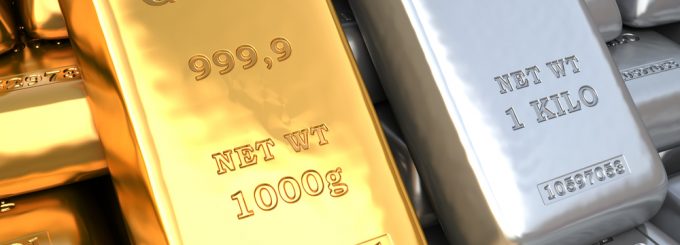U.S. State Approves Bill To Remove Tax On Silver And Gold

The State of West Virginia recently created excitement among precious metals enthusiasts due to its approval of a bill that would eliminate the sales tax on both silver and gold bullion. This means that precious metals will be treated like money rather than commodities.
What The Bill Specifies
SB502 is a senate bill that defines metal bullion used for investment as a precious metal which is elementary and which has gone through the procedures of refining and smelting, that has a value which is based on its content as opposed to its form. Investment coins consist of both numismatic pieces and other monetary instruments which have legal tender. If the bill is signed into law by Governor Jim Justice, it would become effective by July of 2019.
The main benefit of this law, at least within West Virginia, is that it would eradicate a barrier for investing in silver, gold and other precious metals, giving residents the opportunity to shield themselves from the inflationary policies of the American government and Federal Reserve. A number of other states are considering following suit, such as Kansas, Tennessee, Arkansas and Oklahoma.
The Role Of Silver And Gold In The U.S.
Both the United States and other governments throughout the world today treat silver and gold as commodities, refusing to accept them for payment, and taxing those that sell them. This has been a source of contention among precious metals enthusiasts, who point out that gold and silver have been used as money since the earliest civilizations.
A growing number of Americans are concerned with the dominance that the Federal Reserve has over the money supply, and see the return to silver and gold for legal tender as an effective alternative. Former Congressman Ron Paul has also given his support to legislation that would completely get rid of capital gains taxes for precious metals. Unfortunately things move rather slowly in Washington D.C. so many don’t expect true monetary reform happening soon.
What Could Happen If The Bill Passes?
Should the bill pass in West Virginia, this would mean that residents (or those visiting the state) would no longer be subject to sales tax on precious metals, which would encourage people to start using it for daily transactions. Most experts agree that this would lead to competition among currencies, which is a good thing. A lot of Americans, especially libertarians who believe in the Austrian School of economics, have been calling for sound money for many years, and have grown tired of Federal Reserve notes and the issues which are inherent in using them.
Some argue that the Founding Fathers wanted Americans using gold and silver from the very beginning, and for a time, they were. Over the last 240 years there have been multiple periods in which the U.S. was under either gold or silver standard, culminating in the Bretton Woods Agreement signed at the end of the Second World War, but by 1971 the U.S. dollar was no longer backed by silver or gold despite being the world’s reserve currency.


